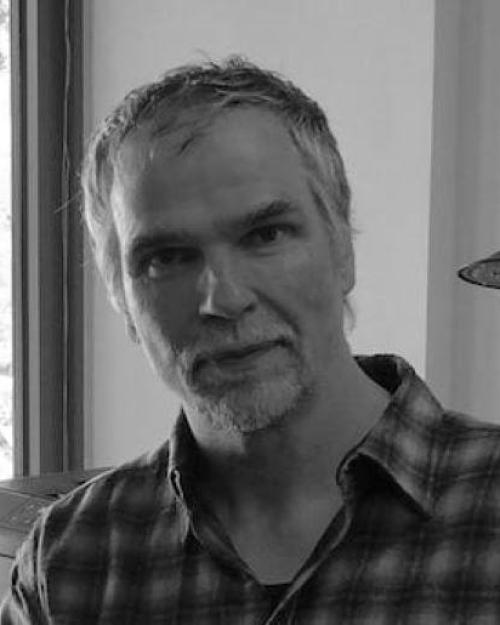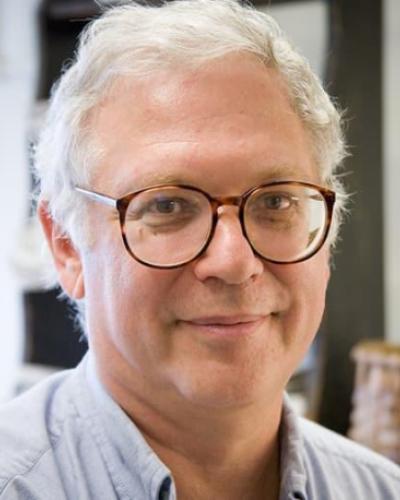Richard “Dick” W. Miller, PhD, Wyn and William Y. Hutchinson Professor in Ethics and Public Life (Emeritus), passed away on 6/9/23 at the age of 77. He is survived by Peggy Dieter (his wife of 41 years) and Laura Miller (his daughter).
Dick received a BA from Amherst College, and a PhD in Philosophy from Harvard University. His dissertation, on Wittgenstein, was supervised by Rogers Albritton and Hilary Putnam. He was a professor at Cornell’s Sage School of Philosophy from 1973 until his retirement in 2019, and the Wyn and William Y. Hutchinson Director of Ethics and Public Life at Cornell University from 2011 to 2019. In the latter capacity, he organized colloquia on such vital topics as the politics and ethics of the rise of China, racial and class inequality in America, and the ethics of globalization and American imperialism.
Dick was a polymath. He authored five published books: Equality, Democracy and National Sovereignty: Reconciling East and West (Beijing: People's Publishing House, 2016, Chinese title: 平等,民主,与国家主权:东西方的和解 – apparently available only in Chinese); Globalizing Justice: The Ethics of Poverty and Power (Oxford: Oxford University Press, 2010); Moral Differences: Truth, Justice and Conscience in a World of Conflict (Princeton: Princeton University Press, 1992); Fact and Method: Explanation, Confirmation and Reality in the Natural and the Social Sciences (Princeton: Princeton University Press, 1987); Analyzing Marx: Morality, Power and History (Princeton: Princeton University Press, 1984, Chinese translation, Beijing: Higher Education Press, 2009). At the time of his death, he was completing final edits on a new book titled, The Ethics of Social Democracy: Justice Meets Capitalism. Written with uncommon fervor in what he did not realize were his final days, the book reflects the political principles to which he felt deeply committed.
He also published many papers on a very wide variety of topics, both philosophical and political. His philosophical breadth was breathtaking. Although mainly known for his writings in political philosophy and the philosophy of the social sciences, he publish important contributions to Ethics, Epistemology, aesthetics, and the philosophy of the natural sciences.
He was also remarkably knowledgeable about history, music, film, and the literary and visual arts. He enjoyed travel, beginning as a young man in college when he would spend summer break backpacking across Europe, wanting to experience the life and culture of everyday people and not merely content to sample pre-packaged tourist experiences (he sincerely loathed a guided tour). Later in life, he brought this intrepid spirit to his travels with his family as they went to remote parts of Norway, Guatemala, Costa Rica, Nova Scotia, and later to Russia and China for guest lectures on the ethics of climate change and economic and political inequality.
Here are some comments from colleagues and former graduate students who worked with Dick:
“Dick was warm and generous with his time. He was also quite funny, though I'm not sure how widely this is appreciated. His jokes were often subtle, yet incisive, and always delivered in deadpan. I loved his courses and his way of teaching. His lectures had a rhythm and narrative quality that drew you in. They were peppered with vibrant examples that went well beyond philosophy and drew from his vast interests in literature, history, and culture – from a casual reference to a Stendhal novel to an extended discussion of the trade of tin and copper between the Hibernians and Helvetians in Bronze-age Europe.”
“As an advisor, Dick was unfailingly generous with his support and very patient, particularly during the several years I was on the job market. Seemingly every time we met to discuss my work, he'd have at least one question for me that I couldn't answer but that, as soon as he asked it, I knew that I needed to be able to answer. Dick had a nose for the ways in which a philosophical account might elide some complicating features of the thing at issue for the sake of a neater theory, and that has had a lasting influence on me.”
“I was his last student, and he attended my hooding ceremony only a few weeks ago on May 27. He sat in the front row of the public seating with my family (who were fascinated by how many languages he spoke!). The next day, he and Peggy invited all of us for a lovely lunch on their porch. That is just one indication of his generosity, which I benefited from ever since the start of my program when he invited me to sit in on his political philosophy seminar as a prospective student and subsequently invited me to teach in the Ethics and Public Life Program.”
“Dick was a very important contributor to a number of areas of philosophy but also the contemporary discourse on matters of great urgency (e.g., climate change and U.S. foreign policy). I drew upon his publications extensively in courses I taught in the philosophy of science and applied ethics to generations of planning students. His extra-philosophy influence on economic methodology, for example, is very nicely summed up in a paper by Cambridge University economist Jochen Runde, “Assessing Causal Explanations,” (Oxford Economic Papers, 50, 1998, pp. 151-172). I think much of Dick's later work embodied the spirit of Marx's eleventh thesis on Feuerbach: "Philosophers have only interpreted the world, in various ways; the point, however, is to change it."”
Dick was a truly great philosopher, a kind and committed mentor, and a passionate and resourceful proponent of liberal social democracy. I will always be grateful for the support and direction he provided as my dissertation supervisor. Across a prolific and astonishingly wide-ranging philosophical career, Dick adeptly blended empirical investigation and philosophical and argument. A great deal of Dick's work will be read for generations to come, including his as-yet unpublished book on the ethics of social democracy that he was completing in his final days. If I may, I'd like to recommend one of my favorite essays of his, one that I think is wonderful but which has flown under the radar owing to its being but a review essay (of Tim Scanlon's What We Owe to Each Other): "Moral Contractualism and Moral Sensitivity: Critique and Reconstrual," Social Theory and Practice (2002). This essay displays Dick's deep philosophical insight and the characteristic warmth and kindness that students and colleagues around the world will long remember.“
Full obituary here.





